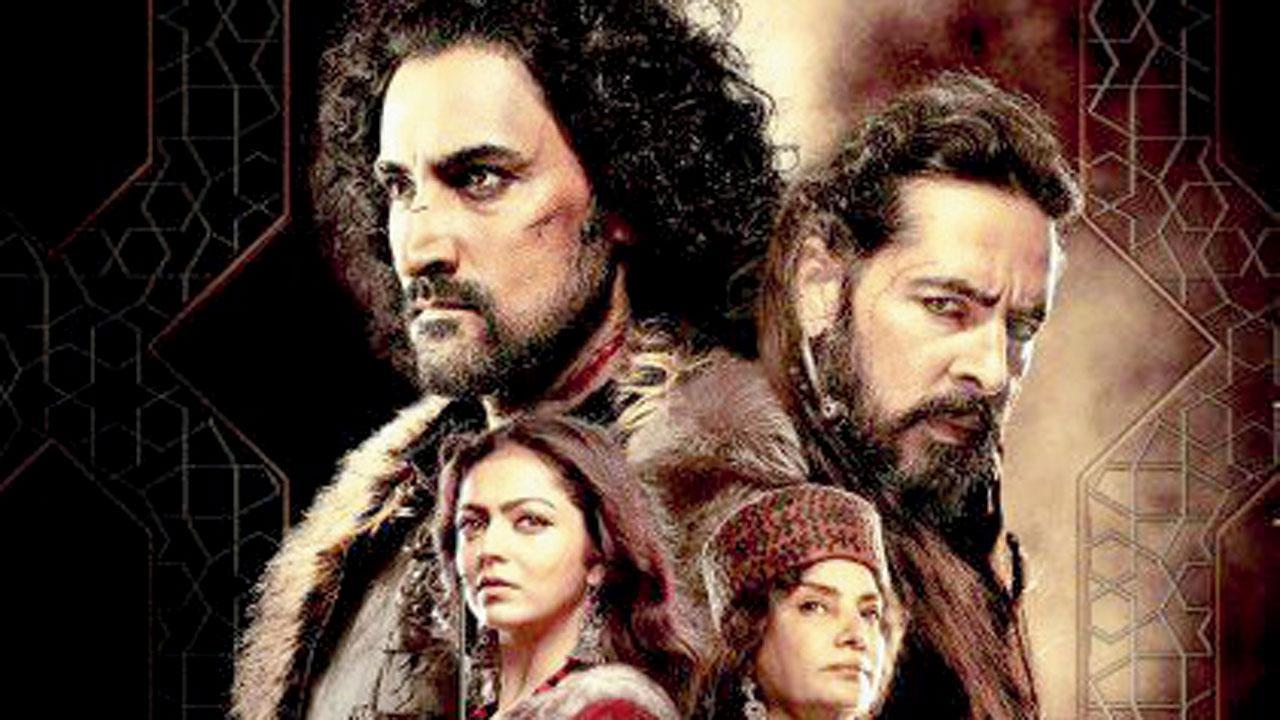There’s something about watching history on screen—it feels real and unreal at the same time!

A poster of web series Empire
Until recently there were two kinds of people in the world—ones who’d seen and therefore wouldn’t stop talking about eight seasons, 73 episodes of the HBO show Game of Thrones (GoT)—in GIFs, memes, quotes and characters.
The second being those who hadn’t, and actively wished to stay away from the first lot—explicitly mentioning so, sometimes even in their Twitter/Tinder bios! I belong to the latter demographic—that tells you, not so much into fantasy fiction.
But not for lack of having tried though. Only the user interface of the app Hotstar was so screwed up, that after watching GoT, S1 E1, I accidentally pressed S2 E1, assuming it was the second episode—realising in little time, all those who I’d first seen, had already died. Gave up!
That GoT as a global phenomenon for an imagined historical series, about blood and lust, greed and betrayal, with exquisite production design, would spawn regional variants is a given. Empire on Hotstar+Disney, directed by Mitakshara Kumar, created by Nikhil Advani and his company Emmay, is one of them.
What’s the difference, though? That GoT’s Jon Snow, with even his parentage under discussion, is no Zahiruddin Mohammed ‘Babar’ from Empire. Because Babar, who eventually founded the Mughal dynasty in pre-British India, defeating Delhi’s Ibrahim Lodi’s army, was real.
A painting from Baburnama
Further, he wrote a memoir, Baburnama, minutely observing/recording his life and times that, as Islamic literature’s first autobiography, has no parallel in Asian history of late 15th, early 16th Century. That book has gaps/missing chapters from his life, and has passed on multiple hands and translations since he wrote the original in Turkic.
The first thing you notice about young Babur still is the deep influence of his maternal grandmother, Aisan Daulat—coaxing him into a warrior king, with his sword Alamgir. Just so he’s not as deeply inspired by his genteel father, Umar Sheikh Mirza—more inclined towards poetry and arts.
Which also places women, notably Babur’s sister Khanzada, as quite central to the king’s court—even if obviously absent from the warring army. In Empire, the always-spectacular Shabana Azmi plays Aisan Dulat.
You’re as struck by her as the stunning looking female leads. Which is to take away nothing from their performances. Or the equally good looking men; only that you’ve seen them before—Kunal Kapoor (who plays Babur), Rahul Dev (loyal lieutenant Wazir Khan), Dino Morea (the antagonist Shaybani Khan).
The series is based on Alex Rutherford’s Empire of the Moghul: Raiders from the North (which I haven’t read). The closing credit suggests the script has been vetted by a historian (Syed Ejaz Hussain).
There are well-known chunks from Babur’s battles in India, chiefly against the coalition of the Mewar kingdom (Rana Sangha), that’s not there on the show. Those singularly obsessing over every historical fact-check though, must first unsee Mughal-e-Azam. There was no Anarkali in recorded world history.
Which is anyway about men killing men, establishing important dates for battles. Making you wonder if we continued at the same rate, we’d ever have to worry about climate change—with humans annihilated over conquests for land/ego/greed anyway. Mythology reinforces this.
Only that perhaps wars back then weren’t simply about old men talking, and young men dying. Perhaps the king himself, defying death, literally led from the front.
Yes, Babur’s story of Central Asia (starting with Farghana) seems far in time. Or not, I thought, when Babur brokers peace with Shaybani Khan, in return for safe passage for his associates and family from Samarkand. As did America—a corporate empire, with no overt territorial ambitions—from Taliban, Afghanistan, in 2021.
Building an army/militia, from the young in the wilds, with no formal kingdom to call his own, Babur mounts another attack on Samarkand. This time, with help from Tajiks, among others.
The Tajik war hero Ahmad Shah Massoud had similarly been fighting against the Taliban, for Afghanistan, everyday for 25 years—until he was killed through deceit in 2001. His son in Panjshir valley, pretty much Central Asia, in north Afghanistan, is standing with the gun again, as we speak!
History itself feels less distant when you consider the years between 1939 (WWII began) to 1980, is the same as between 1980 and 2021! Fantasy fiction evokes no such intellectual curiosity. Neither does rote learning of school text for annual exams—after Babur, Humayun, Akbar, Jehangir, Shah Jahan…
For those who believe they were made to read “too much Mughal history” have obviously not read “too much history”. There’s indeed as much of it on all dynasties, Cholas to Chalukyas, Mauryas to Marathas…. Most students don’t go beyond Class X.
As concept for a show, there is no end to the Empire. But it isn’t GoT—for the twisted binge worthiness its followers evidently swear by. Maybe it’s not complex enough?
Neither are public discourses on historical figures. Can’t be, when you deem anyone as wholly a hero or villain. Babur is no exception. A series, competently put together, is a start, nonetheless. Books lend greater depth obviously. Babur’s own is a great place to begin too.
Mayank Shekhar attempts to make sense of mass culture. He tweets @mayankw14
Send your feedback to mailbag@mid-day.com
The views expressed in this column are the individual’s and don’t represent those of the paper.
 Subscribe today by clicking the link and stay updated with the latest news!" Click here!
Subscribe today by clicking the link and stay updated with the latest news!" Click here!







